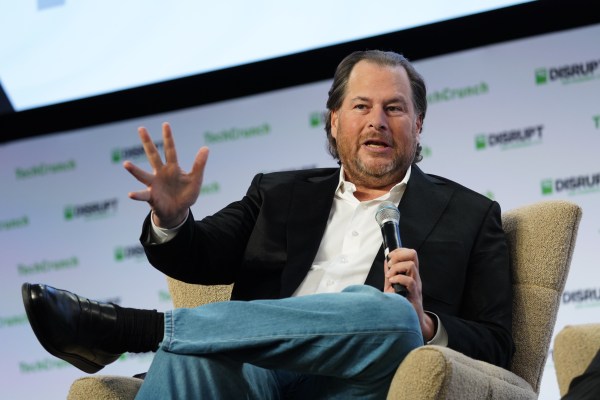If you’re a regular reader of the tech and business press, it’s been painting a pretty gloomy economic picture recently, with a tendency to accentuate the negative. There’s inflation and layoffs and supply chain problems, oh my!
None of that seems to be affecting Salesforce though, which just had itself a fine quarter along with a bright revenue and profit forecast.
Earlier this week, the company reported revenue was up for the quarter a healthy 24%, to $7.4 billion. Analysts had expected $7.38 billion. Meanwhile, the company expects revenue growth of 21% in its current quarter, and 20% for its current business year, its fiscal 2023.
Salesforce chairman and CEO Marc Benioff was almost gloating at the call with analysts earlier this week. “And I can tell you that our business — you can see this in the Q1 numbers, can’t you — is incredibly healthy…We’re carefully watching the economic data. I know all of you are doing that as well,” he said.
But then Benioff said something interesting. You may be having a down quarter, and the economy may be dogging you, but it’s not affecting Salesforce. No siree Bob. “And so far, we’re just not seeing any material impact from the broader economic world that all of you are in.”
Benioff attributed that to a resilient business model that has survived the slings and arrows of cyclical economic shifts. In fact, for Benioff everything is incredible, a word he uses several times in this quote: “Our demand environment where demand is very strong, and if you look over the last 23 years, Salesforce has proven to be incredibly resilient based on this incredible business model. We have an incredible technology model that we have, where we’ve been through all kinds of dot-com crashes and recessions and financial crises and global pandemics and all of you have watched us go through every possible storm, but we continue to weather these storms through the power and strength of our model.”
While he admitted in the early days of the company Salesforce ran into serious trouble when an economic crisis hit in 2001 after the dot-com crash, he said he learned a valuable lesson from that, and worked to build a more resilient business model.
“In 2001, I think [the economic crisis of the time] really impacted us. We almost lost our business because we were on monthly contracts, we didn’t have the right cash flow structure, investors just wouldn’t give us any money, and so we made a lot of changes then, and it really strengthened our business and made us more durable over time.”
As we reported in a 2018 story, the company, which was founded in 1999, actually had trouble raising money early on as most investors didn’t see the value of delivering enterprise software as cloud service, something that is entirely mainstream today.
“I had to go hat in hand, like I was a high-tech beggar, down to Silicon Valley to raise some money…And as I go from venture capitalist to venture capitalist to venture capitalist — and a lot of them are my friends, people I’ve gone to lunch with — and each and every one of them said no,” Benioff said.
He is no longer a high-tech beggar. He is a man whose company is closing in on a $30 billion run rate, where the revenue has risen 72 consecutive quarters, and while the economy may be entering an unstable period, he’s not scared. He’s not worried. You may be in a bad place economically, but Salesforce most certainly is not. Just ask the co-founder and co-CEO.
